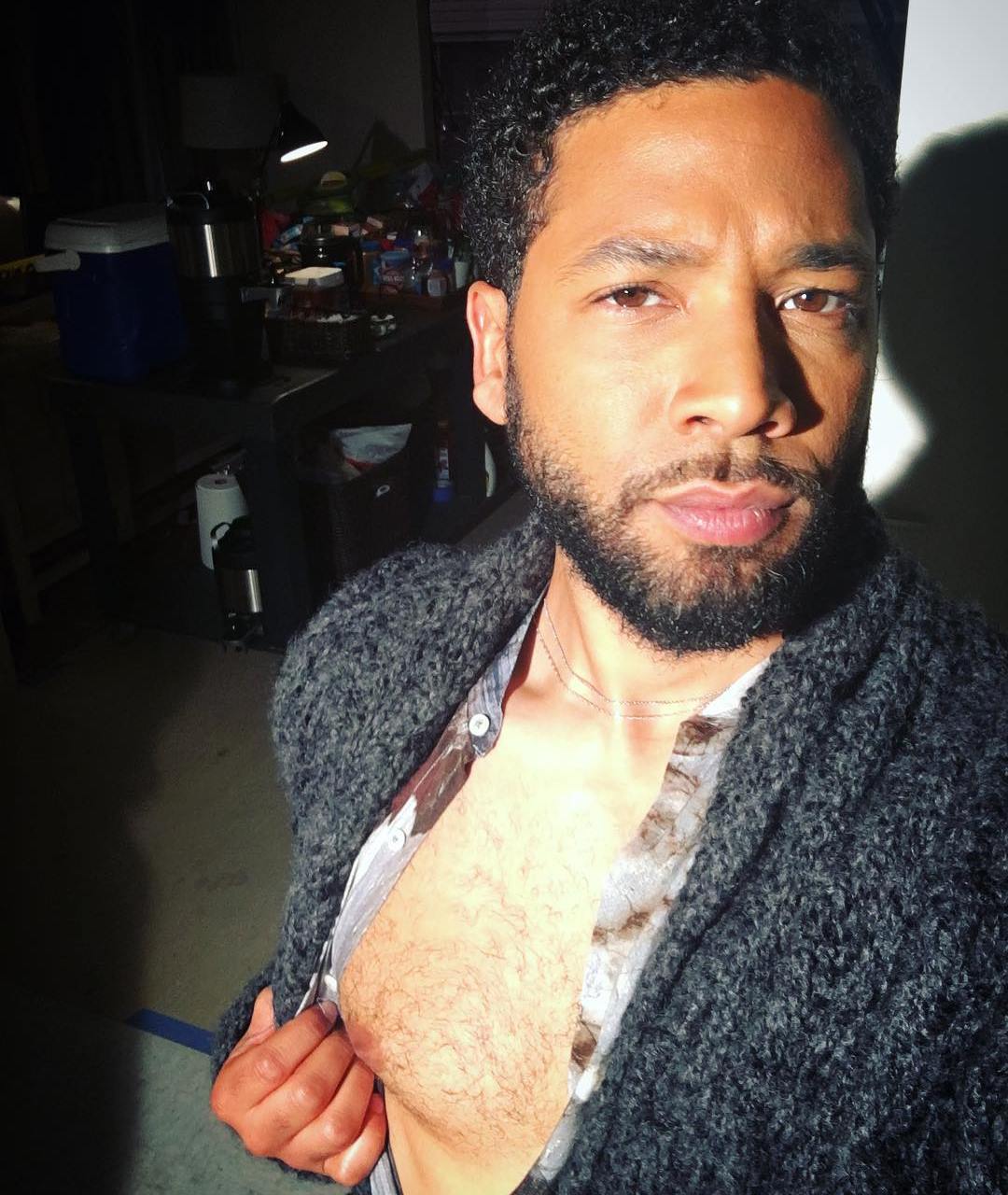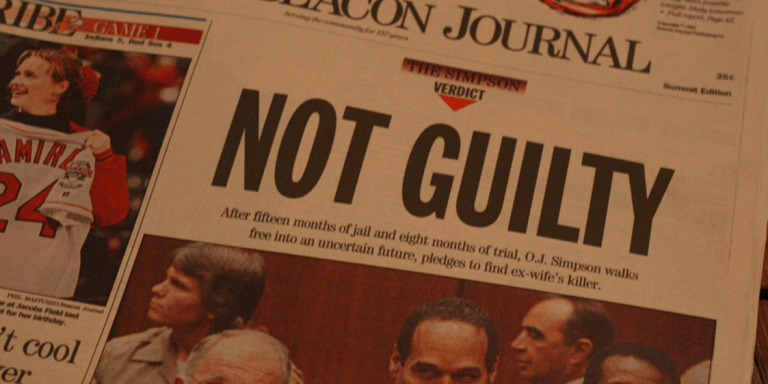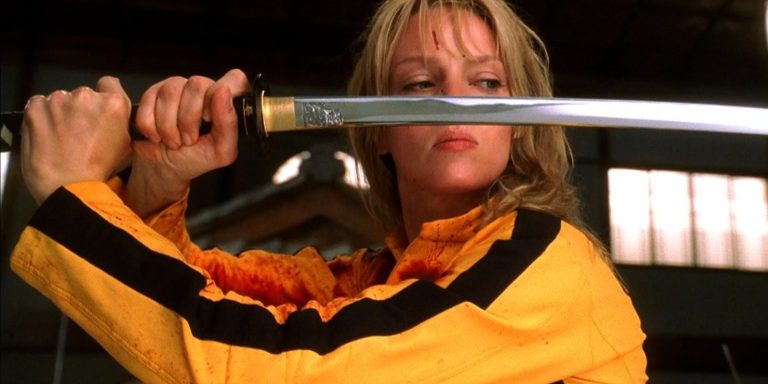Like most of you (or, all of you) I was disappointed when the news broke about Jussie Smollet. For those of you who don’t know, last week, Empire star Jussie Smollett turned himself in to the Chicago police following accusations that he filed a false police report, a felony that could lead to up to three years in prison. Upset by his current salary and seeking publicity, Jussie staged a fake assault, making himself the victim of a “hate crime” just one week after writing himself a death threat. As the facts of the bizarre case continue to unravel, conversations about his motives have left people puzzled.
Sure, the man may make a little less money than some of his Empire co-stars, but he seems to be doing quite well for himself! Why would someone so talented, so accomplished, and so good looking go to such extremes for more attention and more money? Further, in the words of Chicago police superintendent Eddie T. Johnson, “Why would anyone — especially an African-American man — use the symbolism of a noose to make false accusations? How could someone look at the hatred and suffering associated with that symbol and see an opportunity to manipulate that symbol to further his own public profile?”
I obviously can’t speak to Jussie’s state of mind, but I can, however, speak to our culture’s destructive obsession with the two things it appears Jussie craved more than anything else in this world – money and attention. Transparently, as a Black woman living in America, this obsession has contributed to some of the dysfunctions, brokenness and false narratives in my own life. My goal is to address and tackle some of the uncomfortable (and potentially controversial) issues underlying the Jussie Smollett fiasco, and create a healthy platform for other people to start having these discussions with themselves, and in their respective communities.
A few weeks ago, I did something I haven’t done in a very long time – I watched a music video. I hadn’t planned to watch it. I was mindlessly scrolling on Instagram and saw that a friend had posted about this particular video. The curiosity in me wanted to see what all of the hype was about, so I pulled up YouTube on my computer and typed the words, “Cardi B ‘Money’.”
Growing up in the 90s, watching music videos used to be a part of my daily routine. From MTV’s TRL to BET’s 106 & Park, I spent hours of my life in front of the television learning Britney Spears’ latest dance routines, copying Aaliyah’s hairstyles, and swooning over boy bands like B2K and *NSYNC. While mainstream music (and media, for that matter) has always been criticized for the unhealthy messages it promotes, over the past few decades, hip-hop has increasingly been scrutinized for its materialistic, egotistical, anti-feminist messages. I have no intention of bashing hip-hop music. In fact, I have a love-hate relationship with many of the controversial messages embed in music, television, and film of all genres. However, as I sat in front of the computer and watched Cardi B’s elaborate display of wealth in her new music video, I was overtaken by a plethora of conflicting emotions that I will attempt to explain.
Obviously, Cardi B is a beautiful woman. From her light, caramel skin (I’ll save the colorism post for another day), to her voluptuous body, it’s hard not to stare at her. And you have to give it to her, she’s already had an incredible career. This year, she became the first solo woman to win Best Rap Album at the Grammys. As a Black woman, the parts of me that have always been made to feel inferior to every other social group around the globe wanted to reach through my computer screen and hug her. Or, twerk with her. After all, when one of us succeeds, don’t we all succeed?
However, another nagging part of me that I could not ignore internally wept. Do I have to exploit my body to be successful? Is my ass my best asset? Is money really more important than love? Was I really just born to “flex”? Should I get rich or die trying, or marry rich? Will I be made fun of, or mocked, or called a traitor if I speak up about any of this? While the “Money” music video is just one example, it very clearly lays out an issue in America that we don’t like to discuss – our cultural obsession with attaining and displaying resource.
The last thing I want to do is come off as self-righteous. To some extent, I’m a hypocrite. I live in Los Angeles and work in the entertainment space, so I am not immune from or ignorant to the social pressures that accompany achievement, especially in Hollywood. I owe the government over $200,000 in law school loans, and yet I bought myself a brand new Lexus as soon as I got my first big-girl job. In my defense, I drive a lot living in Los Angeles, so having a comfortable car is very important to me, but I’m more than aware that it was probably not the most financially wise decision.
So why did I do it? Why do we love Cardi B’s “Money”? Why did Jussie Smollett stage a fake attack on himself? I’m not exactly sure, and I know all the social conspiracy theorists are having a field day. But I do know that Black America has been fed a false narrative with respect to money. While this challenge is not unique to the African American community, the historical denial of human rights, resource, and power of Black people in America has contributed to cultural insecurities regarding wealth. Black people in America were oppressed for hundreds of years, and have only had real legal freedom for that last 55 years, following the Civil Rights Act of 1964. Let that sink in. 55 years. For years, we thought only white people could have nice, expensive things. Money and resource represented power. Now, as free people, we want to prove to ourselves, and to the world, that we can acquire wealth, too.
Back to Jussie. This is not meant to excuse or condone his behavior. In fact, it’s meant to do the opposite. I want to shine a light on the issue of materialism and offer a collective call to action – Let’s change the narrative! Money is not the most important thing. Our resource is not reflective of our worth. Yes, we should be working hard to leave a legacy for future generations, but the ends do not, and should never, justify the means.
To my Black men – I love you, no matter how much, or how little, money you make. I don’t care what type of car you drive, or the price of the chains around your neck. I personally apologize if we, as women, have ever made you feel like your money is reflective of your ability to love and honor us. We can all operate in integrity and truth, and still achieve all of the dreams inside of us. Let’s make the decision never to compromise our morals, character, and values (whatever they may be) for money and attention.
I’m sure Jussie would agree with me in saying that it’s not worth the consequences. ![]()






